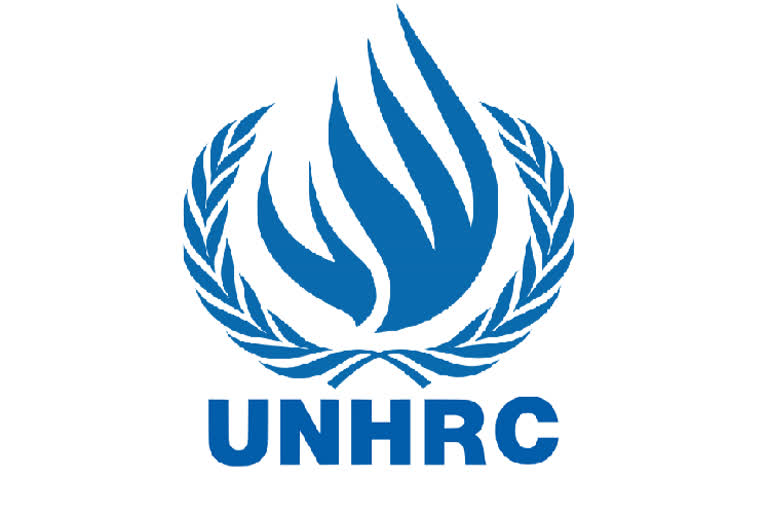New Delhi: The island nation Sri Lanka will face a critical resolution on Tuesday at the ongoing 46th session of the United Nations Human Rights Council (UNHRC) in Geneva, on allegations of lack of justice and conciliation for the victims after the end of the armed conflict with the Tamil separatists Liberations Tiger of Tamil Elam (LTTE) in 2009.
Meanwhile, Rajapaksa’s government has been reaching out to garner support from the international community. No doubt, China has officially declared its support to Sri Lanka. Most interestingly, this time, what is critical of the fact is that Sri Lanka has muster support from one of its key partners India against the resolution, which puts India in a very critical position. Now all eyes are on India as given the stakes India has in Sri Lanka as well as its geopolitical concerns in the region, it remains to be seen how India will pitch for the vote in the UNHRC.
Commenting on the matter, Professor Harsh V Pant, Director, Research at ORF, New Delhi, in an interview with ETV Bharat said, “This is not a new issue for India as India has been dealing with this issue for a long time. There is a domestic political compulsion as far as this issue is concerned, especially now when Tamil Nadu’s election is around the corner.
ALSO READ: Only lip service from Pakistan on terror: Expert
There will be pressure on the Indian government as Tamil parties already said that the UN resolution should be supported by the Indian government so that it can sanction the Sri Lankan government. But it is a tough call for India because geopolitical interests are aligned".
"If countries like China, Russia and Pakistan are voting against the resolution and India does not oppose the resolution, then India looks like a country that would drive a wedge between India and Sri Lanka. And India would not like to do so for geo-strategic reasons as it has been trying to build stronger relations with Sri Lanka.
Sri Lanka is an important geopolitical partner for India and with such moves; India can drive Sri Lanka further into Chinese arms. So the question for the Indian government is how to balance political compulsions with the larger strategic interests that India have, which is basically to keep Sri Lanka on its side”, he explains.
Implication on the geopolitics of the region
India has maintained a consistent position on Sri Lanka- firstly is the support to Sri Lanka’s unity, territorial integrity and secondly is an abiding commitment to Tamil aspirations for equality, justice, peace and dignity.
“There is a perception in Sri Lanka that India intends siding on those countries that want to humiliate the Sri Lankan government, that would mean that in the end, Sri Lanka would further enhance its ties with China. This is already happening and will continue to happen. So there is a delicate balancing act for India to do because Sri Lanka is an important player in the Indian Ocean. Sri Lanka holds a very significant position in the Indian Ocean and India would not like to see China growing a foothold in Sri Lanka as well”, Pant added.
India has invested a lot in Sri Lanka, even though Rajapaksa was seen as pro-China but the Sri Lankan government has taken a more balanced approach towards India and China and India would like Sri Lanka to continue with that.
ALSO READ: Restoration of trust between India, China will take time: Defence analyst
Therefore, the vote is important. Irrespective of what happens in the voting process, the long term challenge that India will continue to face is how to balance domestic politics and strategic imperatives, he underlines.
The resolution is based on a report by the United Nations Commissioner for Human Rights Michelle Bachelet who warned that Sri Lanka’s failure to address human rights violations and war crimes committed in the past puts the country on a dangerous path.
The UNHRC had passed several resolutions against Sri Lanka accusing it of violating human rights, but the Sri Lankan government has always denied it and has seen such moves by the U.N as unwanted foreign interference. Moreover, in 2020, Sri Lanka withdrew from an earlier Human Rights Council resolution.
It is worth noting that of the seven resolutions adopted by the UNHRC against Sri Lanka ever since the end of the conflict in 2009, only four was put to vote. India voted for three of those in 2009, 2012 and 2013, and abstained in 2014. The three resolutions adopted from 2015 were consensual and co-sponsored by Sri Lanka, which did not call for a vote.
ALSO READ: Closely following up with China on plight of Indian students: Indian Embassy


